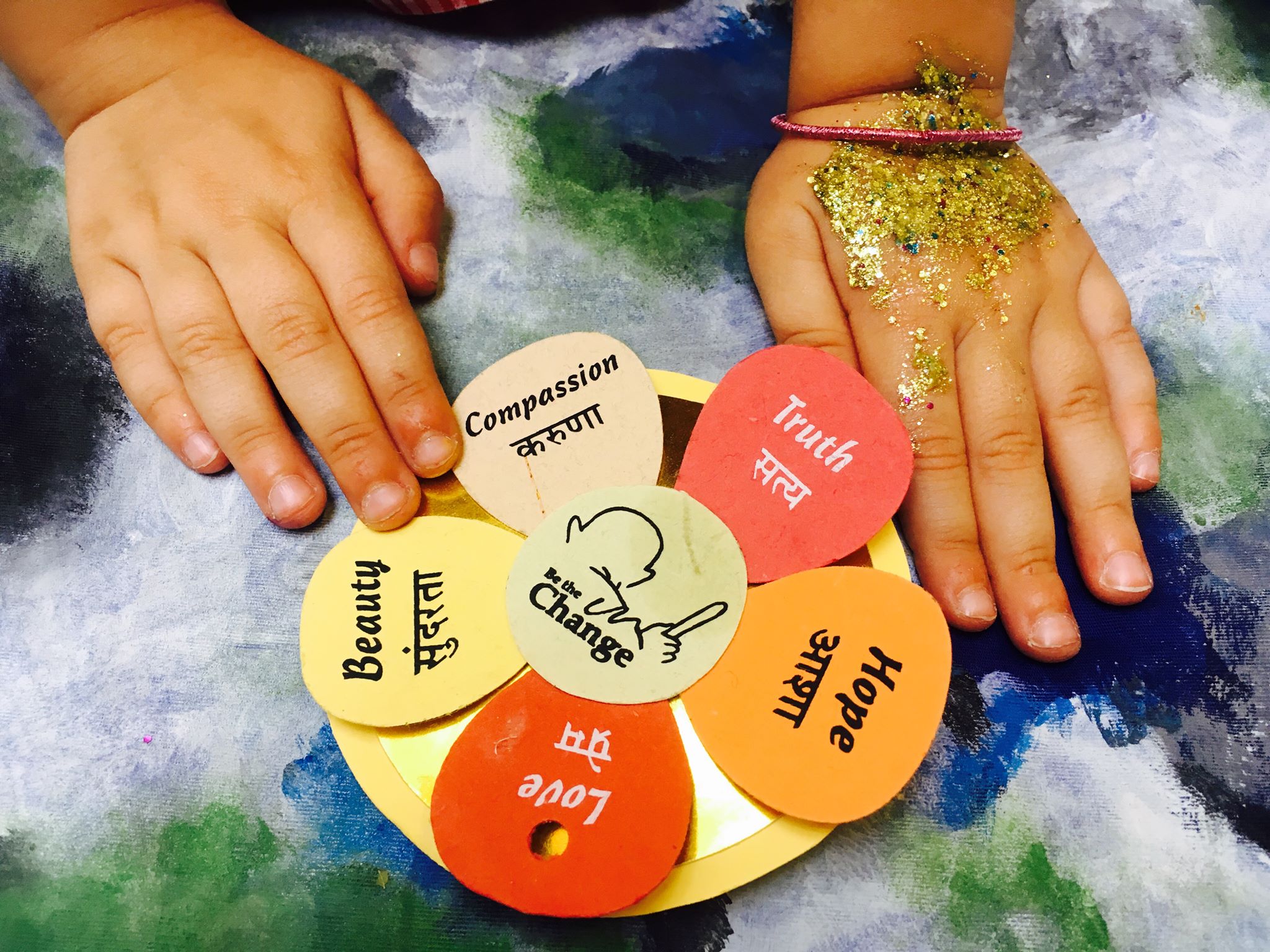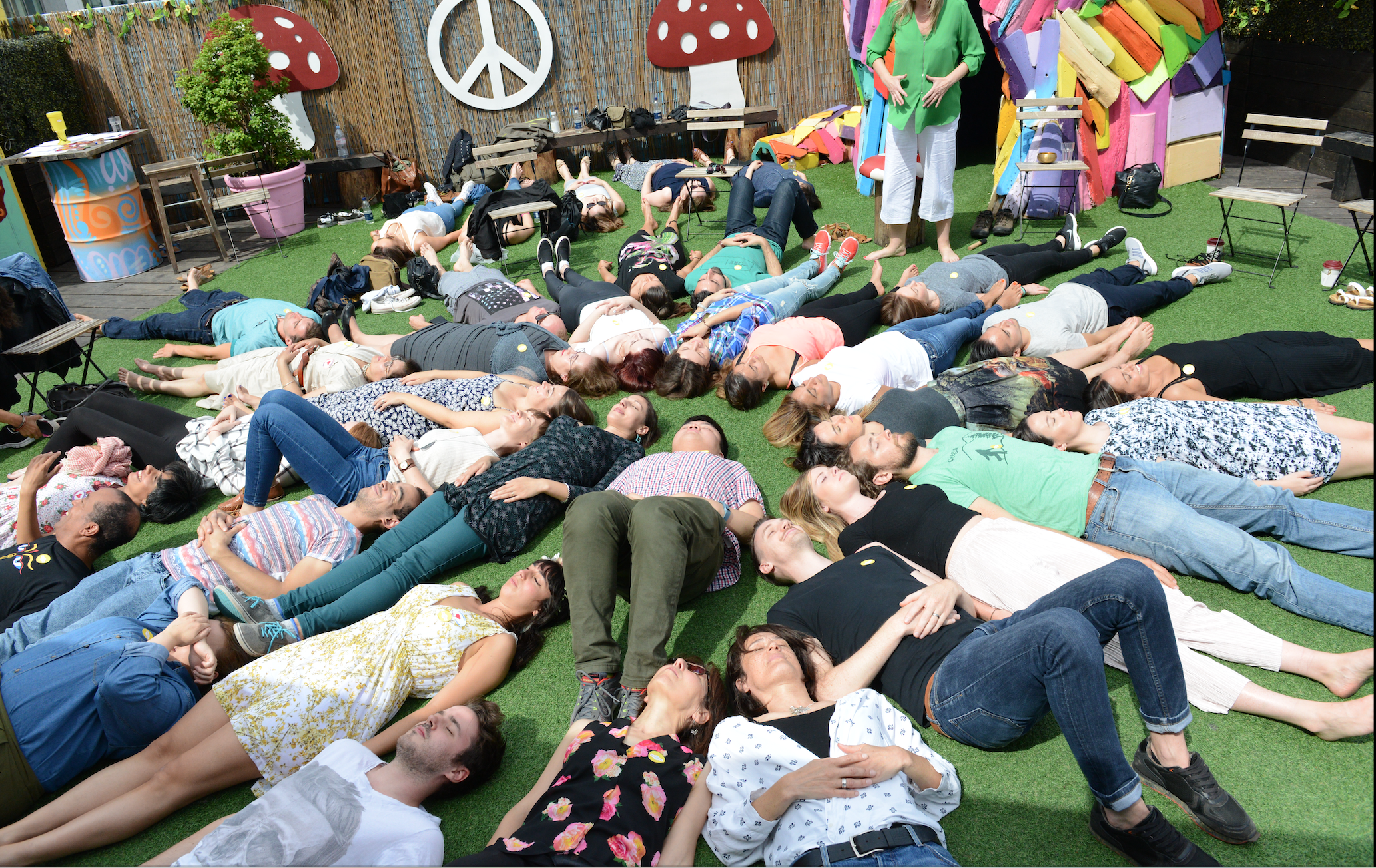Happiness is more than just feeling good. When we flourish, we’re positively engaged with ourselves, our work, the world, and others. A sense of wellbeing influences our health and resilience, and broadens how we think, feel, act, and connect. But research shows that depression and anxiety continue to increase around the world. So how can we boost our happiness, especially in this life-changing year? I talk to the Museum of Happiness, a London-based not-for-profit social enterprise that shares the art and science of sustainable happiness with individuals, communities, schools and organisations, and how to learn happiness as a skill.
Firstly, what is the Museum of Happiness and how did you come up with the idea?
The Museum of Happiness is a not-for-profit social enterprise which shares the art and science of sustainable happiness in fun and reflective ways.
Co-founders Vicky Johnson and Shamash Alidina came up with the idea for a centre for peace and happiness on a walk around the lake in Hyde Park, London, after visiting the Healing Fields at Glastonbury Festival and volunteering for the Dalai Lama respectively.
A quick web search showed that there were museums for everything, from pencils to slavery – but not on happiness. And so in 2015 the Museum of Happiness was born!
What is the goal of the Museum?
The goal of the Museum is to teach everyone, whether they’re 8 or 80, that science shows that happiness is a skill that we can learn – and to offer the tools and support to learn it! By developing this skill we can make a positive and sustainable impact on our lives and, because emotions are contagious, also positively impact the lives of those around us, too.
The Museum of Happiness works with communities, organisations, and individuals – what is your unique approach?
Everything we do at the Museum is based on positive psychology – the ‘scientific study of what makes life worth living’. We use a ‘head, heart, hands’ approach: share the science, so people discover that these approaches really do work; give an experience, so that people have a felt sense in the moment; and offer take-away tools and ‘home experiments’ so that people can keep on reaping the benefits!
Despite our offerings being rooted in science, we focus on making them really easy and accessible! In July 2020 the Mayor of Hackney and the CEO of East London Community Foundation gave us a Here East’s London Innovator’s 2.0 award, for our innovative approach to sharing transformative skills with children and adults who would normally feel uncomfortable accessing mental health services.
You state that happiness is a skill, but how can people learn to be happy?
Learning to be happy involves a couple of things. Firstly, discovering that science shows that around 40% of our happiness is in our hands. This reveals a power that most of us don’t know we have!
This knowledge encourages a ‘growth mindset’ where people perceive challenges as opportunities for growth rather than as something they can’t change or effect.
And then, studies show that positive psychology practices – like gratitude journaling, meditating, and being compassionate to ourselves, etc – have a long-term effect in shifting our inherent negativity bias, improving our wellbeing, and even reducing the symptoms of depression.

The Museum of Happiness teaches the art and science of happiness and mindfulness – tell us about your Certified Happiness Facilitator Programme.
Our Certified Happiness Facilitator Training helps people to do good AND feel good, and to spread the art and science of happiness in their community, place of work, or with their friends and family.
We’ve taken over a decade of study into the art and science of happiness, from thought-leaders, scientists and researchers around the world, and distilled it into something really fun and easy to explore.
Our course is the perfect place to discuss ways to be happier, to explore them, and to put them into practice! It includes the science behind happiness, gratitude and kindness, the skills to live a happier and more fulfilling life, techniques and practices for mindfulness, kindfulness, self-kindness and self-compassion, and much more.
Every year you host a Winter Happiness Festival, can you share some details?
We know that the winter months can be tough for people, and can make looking after our mental health and wellbeing a struggle for everyone.
So on the weekend before Blue Monday (supposedly the most depressing day of the year!), we’ve been holding our annual Winter Happiness Festival since 2016 (when our first event at Spitalfields Market in East London went viral!) It’s an occasion full of fun, practical and inspiring talks and workshops, all revolving around the science of sustainable happiness – a wonderful way for our community to come together, and for new people to join in!
Due to Covid 19, in-person events are challenging in the UK, and we want to keep everyone as safe as possible. So in 2021 we’re coming up with an exciting new plan! Sign up for our newsletter on our website to be the first to hear about what Blue Monday 2021 has in store.
Can you share some practical techniques to boost happiness instantly?
There a lots of ways to boost our happiness instantly and to give ourselves a DOSE of happy chemicals (dopamine, oxytocin, serotonin and endorphins), but here are three super-simple ways we love to share:
- 7-11 breathing Extending our out-breath calms our nervous system, and sends our body the signal that we’re safe – which nudges us into the ‘soothe and digest’ parasympathetic state. So breathe in for the count of 7, out for the count of 11 for a few rounds, and enjoy the convenience of 7/11 whenever you need it!
- Three good things Gratitude is one of the most robustly-researched ways to shift our negativity bias, which is hard-wired in us (our tricky brains have evolved to keep us safe, not make us happy!). Deliberately looking for and writing down three things we’re grateful for overcomes this bias in the moment and, repeated over time, rewires our brain to balance out our innate bias.
- What do I need to best take care of myself right now? Listening to our own needs requires checking in with ourselves – rather than becoming resentful when other people aren’t mind-readers! By answering this question and treating ourselves like our own best friend, we’re able to top-up our inner resources. Remember, you can’t pour from an empty cup!
You spread awareness of the benefits of life-changing experiences; can you share some tips about how to deal with life post-covid?
Life post-Covid is different for so many of us now, and it can be tricky to spot the lotuses when there’s so much mud (to paraphrase Zen master Thich Nhat Hanh!) So we remind people of the three pillars of self-compassion for when life gets tough:
- Recognise that this is tough It’s easy to bury our head in the sand, only realising something’s wrong when we’re buried knee-deep in a box of biscuits (or your coping mechanism of choice). Our nervous systems are only supposed to be in fight-or-flight for a short period every 2-3 days, yet most of us are experiencing chronic sympathetic activation. So, mindfulness of what we’re going through – and admitting that we’re finding it tough, to ourselves and to others – is a first step in awareness and action.
- Recognise you’re not alone Everyone’s life has been touched by Covid, whether restrictions and lockdowns are now a distant memory or whether you’re mourning your first festive season without a loved one. Even if you’re feeling isolated, know that whatever you’re feeling reveals the common humanity of being alive on the planet at this moment in time.
- Be kind to yourself When life is tough, there’s no need to make it even tougher. Set a reminder in your phone, or put up a post-it note on your bathroom mirror, asking “What’s the kindest thing I can do for myself, even just a little?” Self-kindness can be a balm for our troubled souls, and remind us that we matter, too.

You are launching a new programme for teachers, can you share some details?
Created in response to the ever-growing mental health challenges faced by children and young people, we are very excited to launch our new Flourishing Schools programme in early 2021.
We’ll work with schools and teachers to support our next generation of inspiring young change-makers to make a difference in the world, through three core programme elements: planting the seeds of happiness, nourishing those seeds, and then spreading them with the school’s wider community. You can read the story behind it here.
Happiness is what all of us need right now after unstable and stressful times due to the pandemic. The Museum of Happiness is a not-for-profit organisation, how can our readers support you in this difficult post-lockdown period?
There are a number of ways your readers can support us! You can make a donation when attending one of our online events, subscribe to our newsletter and share it with your friends and family, join one of our Happiness Facilitator trainings, or make a donation online.
What are your plans for the future? Do you plan to open a physical Museum of Happiness?
Before Covid hit we were an in-person event and community organisation, with residencies at The Canvas Cafe and 42 Acres in east London, and the UK’s largest homeless hostel in Camden. We’ve had to pivot to online events to ensure the safety of attendees and participants, but the hope is to have a fully-accessible physical space as a community hub for happiness as soon as it’s safe to do so – and to encourage the creation of local Museums around the world!
How can our readers contact you and follow on social media?
You can find us at museumofhappiness.org, on Facebook, Instagram and LinkedIn, or drop our Chief Happiness Officer an email. We look forward to hearing from your readers, and to making it a happier, kinder world – together!


